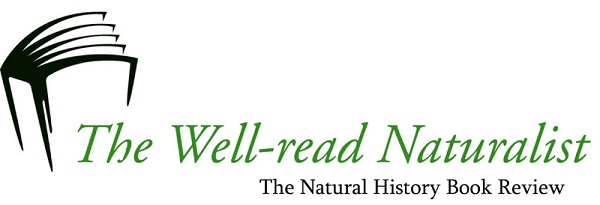“Lionel Kelleway explores the micro world of Mosses in a wood on the border of Shropshire and Herefordshire with the help of a local bryologist Mark Lawley.”
“Lionel Kelleway goes in search of ferns that have settled in some unexpected places.”
“Lionel Kelleway joins two bird-ringers in an orchard in Worcestershire as they wait for noisy flocks of Scandinavian fieldfares to arrive; and unexpectedly witness a larger avian visitor dropping in.”
If any of these radio program descriptions caught your attention to the level of generating an instant sense of anticipation of the time of their respective broadcasts being near, you, my friend, are a true nature geek after my own heart (as well as possibly an ardent fan of Lionel Kelleway). Sadly, all three of these broadcasts were made on BBC Radio 4 back in December of 2007; and while they were temporarily available as podcasts via both the BBC website and iTunes, both sources have since removed them from public availability.
So why am I bringing them up here if it is no longer possible to locate, download, and enjoy them? Because the network that was originally responsible for them, and which also spent the entirety of 2008 releasing weekly broadcasts / podcasts of the Best of Natural History Radio, has recently gone silent in the area of natural history. While the page still exists in the podcast section of their website, it is a mere ghost of past greatness – no podcasts, either past or present, are available there. Nor are they available through iTunes, whose “Best of Natural History Radio” section once held dozens of hour-long voyages into the auditory Xanadu of natural history reporting as only the British can do it.
Perhaps they have something in the works but have not yet gotten around to releasing advance notices of it. Perhaps they are only days away from posting the first of another superb series of reports on everything from liverworts to Lepidoptera. However my inclination is to think that perhaps they simply didn’t think it a subject about which people any longer wish to hear.
If you, like me, can think of few more pleasant uses of idle moments than plugging the headphones into the MP3 player of choice and replacing all worldly cares with intriguing questions about the mating cycle of the Atlantic salmon or the best methods for discovering little known ferns, then it is our collective responsibility to let our opinions be heard by the management of the BBC. Encourage them to continue their long history of excellence in natural history broadcasting by continuing their Best of Natural History Radio podcast. Remind them, politely of course, that the absence of these podcasts leaves a void in the world of modern media that is being filled by no other broadcasting entity. It is one thing for them to think that no one might be listening; however it is quite another more serious failing for all those of us who have enjoyed these presentations to be silent about the loss felt in our lives by their discontinuation.

February 20, 2009 @ 14:53
I hope your voice is heard. You seem passionate.
Fred Smilek is the acting president of the Society to Save Endangered Species. It was founded two years ago by Fred Smilek along with his two best friends Charles and Jonathan. http://www.fredjsmilek.com